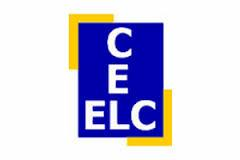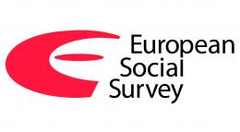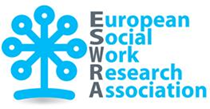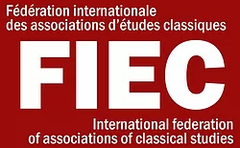List of members

ENRESSH – European Network for Research Evaluation in the Social Sciences and the Humanities
The “European Network for Research Evaluation in the Social Sciences and the Humanities” (ENRESSH) is an association dedicated to the study of research evaluation protocols and policy in the SSH. ENRESSH aims to propose clear best practices in the field of SSH research evaluation.
Initially called EvalHum, it was the force behind the ENRESSH COST Action, that ended in April 2020. Proposed by a group of some 20 researchers from 16 countries, all EvalHum members, it grew to bring together more than 125 participants from 37 countries and with 3 international partner countries.
The international reputation was such that the board decided to continue under the ENRESSH name, but still as an association under French law.
Contact info
Dr. Michael Ochsner
President of ENRESSH
Senior researcher
+41 (0)21 692 37 46

Erasmus University Rotterdam
Erasmus University Rotterdam is a dynamic, international, diverse, inclusive, and curiosity-driven research university. With strong ties to the diverse city of Rotterdam, the wider delta region, our strategic alliances and in close cooperation with its global community, Erasmus University Rotterdam makes minds matter, and creates positive societal impact.
Our university was founded in 1913. Together with a population of 30,000 enthusiastic students and around 1,600 curious academic staff, we focus on solving society’s challenges. Through the emphasis on the social, behavioural, cultural, and historical context, we are in a unique position to help academia, industry and policymakers to understand the causes, mechanisms, and effects of societal challenges, as well as how to deal with these challenges.
A solid foundation in monodisciplinary knowledge and an increased focus on interdisciplinarity leads to a research portfolio covering the full spectrum from fundamental to more applied research.
The connection and interaction between science and society, between theory and practice, are part of our DNA. Talented researchers who enter into international collaborations with an open mind move science forward. With the Erasmus Initiatives, we join forces for science that matters. The four themes of these inter-disciplinary research initiatives – Societal Impact of AI, Dynamics of Inclusive Prosperity; Smarter Choices for Better Health; Vital Cities, Vital Citizens – are a good reflection of our academic and societal strengths.
Moreover, convinced that solving societal challenges is only possible when a diverse community works together in close collaboration, we are pursuing new forms of transdisciplinary knowledge development and knowledge integration. We do this by Convergence, a pioneering partnership between the Erasmus University Rotterdam, the Erasmus Medical Center and the Technical University Delft.
Our three complementary institutions converge the medical, technical- and social sciences and humanities scientific areas, aiming to achieve free movement of people, data and knowledge, deep integration of knowledge, techniques, and expertise, to form improved understanding of, and integrated response to the world’s most pressing scientific and societal challenges.
Together we create positive societal impact, the Erasmian way.
Contact info
Meri Georgievska – Van de Laar
Director European Affairs and Liaison Officer
Erasmus University Rotterdam
+31 (0) 636135622

ESA – European Sociological Association
The European Sociological Association (ESA) aims to facilitate sociological research, teaching and communication between sociologists, sociologists and other scientists, and to give sociology a voice in European affairs. Its focus is the development of sociological knowledge.
ESA is an academic association of sociologists and a non-profit Europe-wide association made up of 2800 members. It was established in 1994-95, following deliberations and consultations among sociologists from a diverse range of countries.
Europe is in the midst of massive changes. Sociology has much to contribute to European level debates and developments. The ESA has an important role to play in organising the European debate and setting the agenda.
For this purpose, the ESA organises and supports up to 40 events each term (two years) and publishes 2 scientific journals.
Regular reports about ESA's activities can be read in the European Sociologist.
Contact info
Marta Soler, President
Dagmar Danko, Director

ESF – European Science Foundation
ESF is committed to promoting the highest quality science in Europe to drive progress in research and innovation.
We work closely with our members, customers and partners, sharing our expertise and offering solution-orientated services aimed at increasing the quality and effectiveness of science and science-related activities in Europe.
ESF has had an enormous and lasting impact on the science community within Europe and beyond.
With 42 years’ experience in all areas of research, ESF was originally set up as a coordinating body for Europe’s main research funding and research performing organisations. In that time, the Foundation has supported over 2,000 programmes and networks, gathering more than 300,000 scientists from 186 countries through funding from 80 Member Organisations in 30 countries.
As the research landscape has evolved, so too has ESF’s role in supporting scientific endeavours. ESF’s traditional research support activities (EUROCORES, European Collaborative Research Projects, Exploratory Workshops, Research Networking Programmes) have been concluded to make room for a new expert services division called Science Connect.
Science Connect delivers practical, skilled and interdisciplinary support and consultancy services across all sectors of the science community.
ESF continues in its role as host to high-level expert boards and committees, and supports them in achieving their objectives. ESF also continues to serve its member organisations through the following activities:
Contact info
Julia Boman
Science Officer
European Science Foundation
1, quai Lezay-Marnésia - BP 90015
67080 Strasbourg cedex – France
Phone: +33 (0)3 88 76 21 71

Eurogeo
EUROGEO is a respected authoritative body for research, training and education in geography, GIS and related subject areas, including transport, agriculture, demographics, environment and earth science. EUROGEO has a strong track record in digital skills and jobs, online training and resources and specifically in supporting the use of open data and developing open scientific enquiry and open learning opportunities.
The association has participatory status in the Council of Europe as the professional voice of geographers in Europe and participates in the Parliamentary Assembly, Committee of Regions and other pillars of the Council. EUROGEO has consultative status in the United Nations, where it provides expert advice on issues associated with data and development in the United Nations, for example in the UN Urban Agenda as part of the HABITAT programme and in UNESCO at the Education committee.
Contact info
Rafael de Miguel González
President
Tel.: 34 876554845

European Communication Research and Education Association - ECREA
ECREA is a learned society of communication scholars devoted to development of communication research and higher education in Europe.
ECREA is organised into 24 thematic Sections, each developing a distinctive field of communication studies, 4 Temporary Working Groups which focus on emerging or underrepresented fields within media and communication studies, and 3 permanent Networks representing specific socio-demographic categories of scholars.
Driven by volunteer work of over one hundred Section, Temporary Working Group and Network Chairs and Vice-Chairs, and eleven-member Executive Board, ECREA is an association with strong bottom-up organisational culture, where various projects and ideas are emerging and materialising through creative energy and enthusiasm of our members.
Contact info
Ilija Tomanic Trivundza, ECREA president
John Downey, Vice-President

European Language Council
With 20 years of policy-making history, our association brings together committed language specialists from around the European continent and beyond to support Europe's language infrastructure, improving societal and individual multilingualism and promoting quality language learning.
Filling a unique niche in Europe's language panorama, the CEL/ELC has unique contact to universities, language institutions, the Council of Europe, and the European Commission, mediating at the various levels to envisage, anticipate and adapt to the future language landscape.
Membership in the CEL/ELC grants institutions and language specialists access to a wide variety of projects and like-minded colleagues in similar language fields, and is open to all institutions of higher education and all national and international associations with a special interest in languages. Additionally, we accept applications for associate membership for individuals.
Contact info
Anna Serpente
Secretariat
European Language Council

European Social Survey ERIC
The European Social Survey European Research Infrastructure Consortium (ESS ERIC) is an academic cross-national survey measuring attitudes and behaviour. Every two years, up to 50,000 face-to-face interviews are conducted across Europe on a wide range of subjects. Since its implementation in 2002, over 425,000 interviews have been undertaken over nine rounds in 38 countries. All European Social Survey data is published anonymously, and made available for free for non-commercial use. As at 3 July 2020, over 160,000 people have registered to download or access the data online. This has led to the publication of 4,417 academic articles that analyse the data (2004-18). The development of the ESS was led by Professor Sir Roger Jowell and Professor Max Kaase at the European Science Foundation (ESF) in 1995.
The ESS became the first social science project to win the annual Descartes Prize for Excellence in Scientific Collaborative Research, awarded by the European Union, in 2005. Included on European Strategy Forum on Research Infrastructures (ESFRI) Roadmap in 2006, 2008 and 2010, the project was recognised as an ESFRI Landmark in 2016. In 2013, the ESS was awarded European Research Infrastructure Consortium (ERIC) status by the European Commission. The project was awarded the Lijphart/Przeworski/Verba (LPV) Dataset Award 2020 by the Comparative Politics Section of the American Political Science Association (APSA).
Contact info
Stefan Swift
Media and Communications Officer
European Social Survey ERIC
City University of London
+44 (0)20 7040 4907
+44 (0)7976 682 285

European Social Work Research Association
The European Social Work Research Association (ESWRA) was founded in 2014 to create a hub for social work research development, collaboration and exchange across Europe. Arising from overwhelming levels of engagement in the European Social Work Research Conference, the Association now has over 600 members from across more than 33 countries.
ESWRA’s vision is to take forward the development, practice and utilization of social work research to enhance knowledge about individual and social problems, and to promote just and equitable societies.
Contact info
Claire Prater
Executive Administrator

FIEC – International Federation of Associations of Classical Studies
The International Federation of Associations of Classical Studies (FIEC) is an umbrella organization that covers most associations of classical studies of national importance around the world. Its aim is to foster cooperation among classical scholars by disseminating information among affiliated associations, enabling direct contact between Delegates, informing governmental authorities on the importance of classical studies. It also contributes to the support of classical studies on all continents, and more generally takes any apropriate action that will help to sustain classical studies at an international level.
Every five years, FIEC holds an International Congress which gathers scholars from all parts of the world and from all sub-fields of classical studies ; this is coupled with a General Assembly of Delegates ; another General Assembly of Delegates is held once between congresses.
Contact info
Prof. Paul Schubert
Secrétaire général de la FIEC
7, rue des Beaux-Arts
2000 NEUCHATEL (Switzerland)